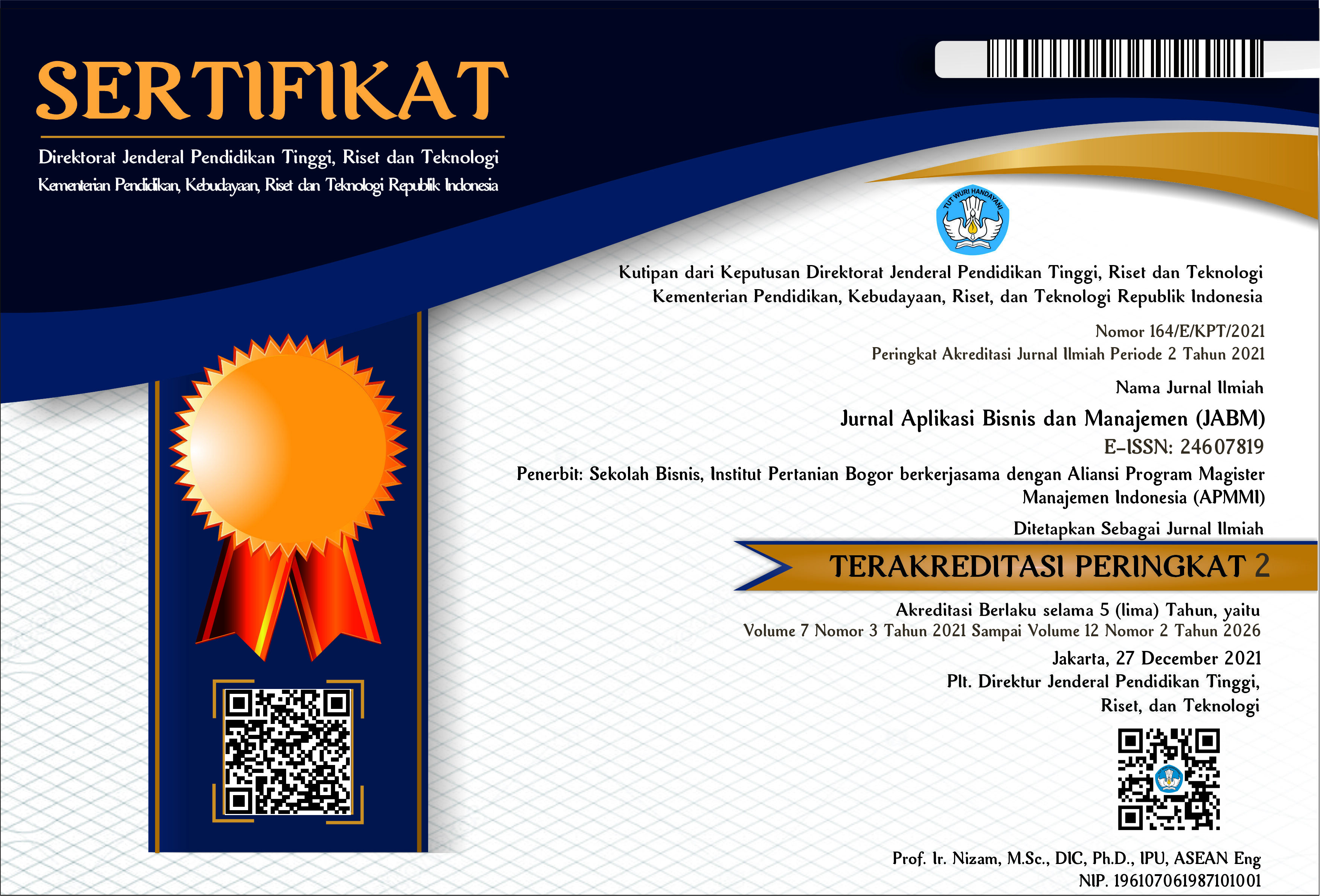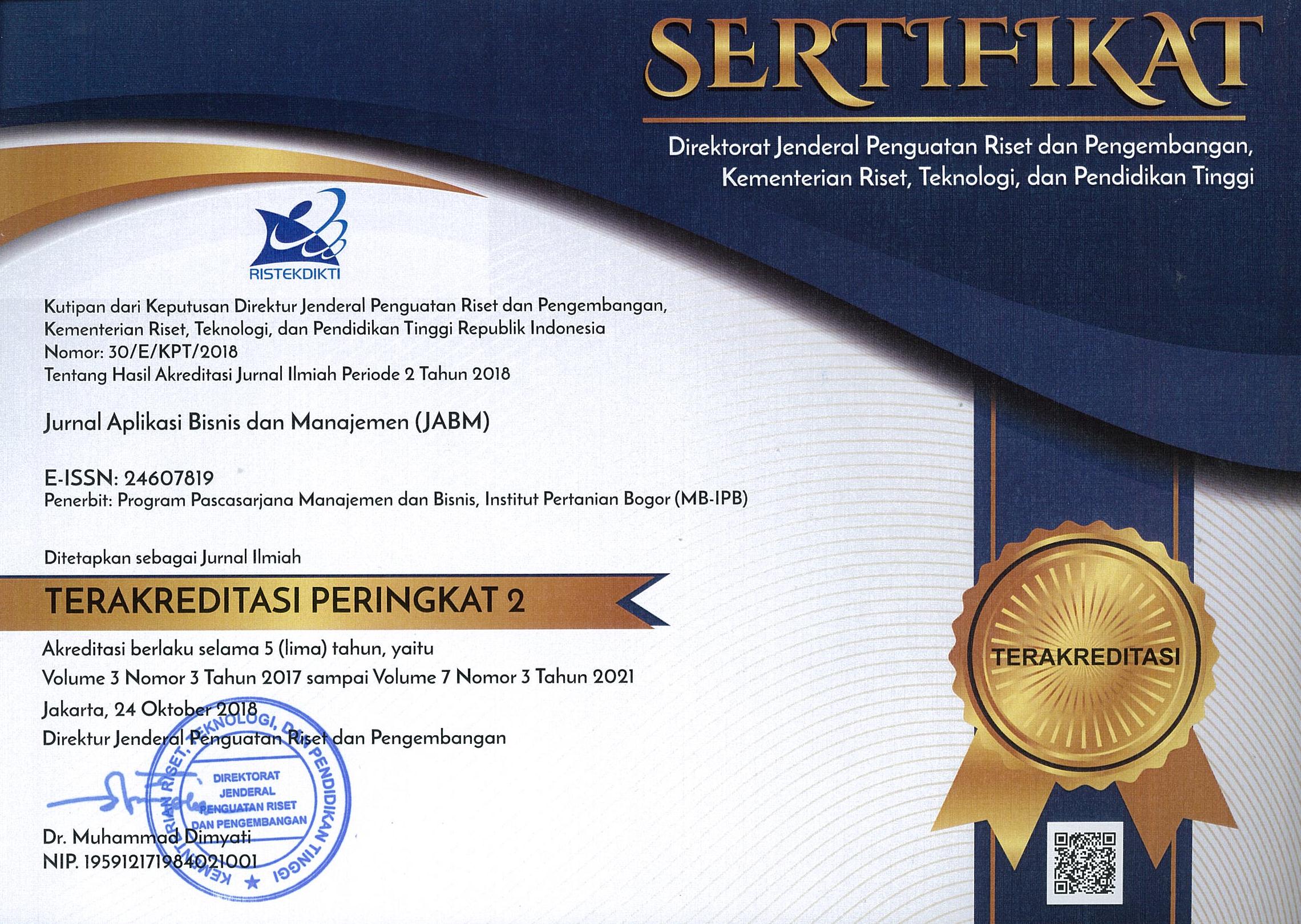The Role of Leadership, Religiousness and Work Environment in Supporting Employee Performance and How Motivation Affects The Relationship
Abstract
Background: Human resources are very important for organizations, because human resources support the formation and running of the organization in accordance with the goals to be achieved. an organization really needs human resources in order to create good employee performance in the organization. Factors that affect employee performance are leadership, religiosity, and work environment.
Purpose: The purpose of this study is to examine how leadership, religiosity and work environment affect employee performance and how motivation affects these relationships.
Design/methodology/approach: Quantitative methods were used in this study. The population consists of employees of PT X (Insurance Company). Cluster Random Sampling was used as the research sampling method. The sample amounted to 252 respondents with research data using primary data. SmartPLS 3.3 analysis tool is used to help this research.
Findings/Result: The results of the study indicate that leadership and religiosity can improve employee performance. This is seen from the P value of 0.000 <0.050 and the T statistic value of 3.705> 1.96 for the leadership variable and the P value of 0.000 <0.050 and the T statistic value of 4.573> 1.96 for the religiosity variable. The motivation variable strengthens the positive relationship between the work environment and religiosity variables on employee performance with a p value of <0.050. However, motivation does not moderate the effect of Leadership on employee performance at PT X (Insurance Company) with a p-value of 0.093 <0.05.
Conclusion: This study shows that leadership and religiosity have a substantial impact on employee performance. At the same time, the work environment has a negative effect. motivation can have a positive influence on the relationship, as well as the work environment on employee performance.
Originality/Value (State of The Art): This study highlights the importance of religiosity as a factor that has a positive impact on employee performance, especially if religious values are applied in a balanced and constructive manner. Leadership values driven by religiosity can improve employee performance and create a harmonious work environment. It is hoped that the development of this model will reduce the scarcity of literature on employee quality.
Keywords: leadership, religiosity, work environment, employee performance, motivation







